Editorial
Reflecting On Press Freedom In Nigeria
Today, May 3rd, is a significant date that commemorates press freedom and serves as a
reminder to evaluate its global status. It is a day to defend the independence of the media and pay tribute to journalists who have lost their lives while performing their duties.
The United Nations General Assembly proclaimed World Press Freedom Day in 1993 following a recommendation adopted at the 26th session of the United Nations Educational, Scientific and Cultural Organisation’s (UNESCO) General Conference in 1991. This was a response to a call by African journalists, who, in 1991, produced the landmark Windhoek Declaration.
World Press Freedom Day is recognised by the United Nations to uphold the basic principles of press freedom worldwide. The day is also a crucial occasion for journalists and democracy advocates to defend the freedom of speech, access to information, and the independence of the media. The Declaration emphasises the objectives of independent and pluralistic media worldwide, and recognises free press as a fundamental human right and essential to democracy.
These paramount values are under attack across the globe. As we observe the day, we have to encourage those who aspire to become the voice of others and provide them with the resources for education.
Governments at all levels in Nigeria must recognise the importance of a free media. The media plays a vital role in keeping the citizens informed and holding leaders accountable, which is essential for a strong and sustainable egalitarianism. Without a free press, Nigerians cannot make informed decisions about their governance, and it will become difficult to address issues such as human rights abuses, corruption and abuse of power.
Press freedom in Nigeria has been a topic of concern for many years. According to Reporters Without Borders, Nigeria ranks 115 out of 180 countries in the World Press Freedom Index. This is because of various factors, such as government interference, harassment of journalists and violence against media workers.
The Nigerian government has taken steps to address these issues, including the creation of the Nigerian Press Council and the Nigerian Broadcasting Commission. However, more needs to be done to ensure that journalists can report without fear of reprisal.
It is worrying that elected leaders in Nigeria, who are expected to safeguard press freedom, have attempted to silence the media through proposed laws that aim to criminalise journalism. These actions pose a serious threat to the practice of the journalism profession in the country.
There is a need to protect the media from the current economic and political climate created by the government. The consequences of not doing so could be detrimental to our democratic practice. Any threat to the media is a direct threat to our equality. Governments at all levels must take the lead in making sure that their actions do not inspire violations of press freedom. A democratic society like Nigeria should know that it has a crucial role to play in maintaining media freedom and facilitating access to public information.
It is expedient that the government takes swift and decisive action to protect media freedom. This includes condemning any violence against journalists and holding authorities accountable for their failure to prosecute attackers. Additionally, the Federal Government must provide tax exemptions for media-related equipment and supplies to prevent the industry from collapsing.
As we celebrate press freedom today, we commend the unwavering efforts of journalists and pro-media rights groups in safeguarding independent press in our country. However, we must emphasise the ethical principles of journalism and the significance of adhering to them. We must not forget that responsible journalism is the cornerstone of a healthy democracy.
Press freedom is a widely accepted concept in modern societies; nevertheless, some have raised concerns about its potential negative effects. Critics argue that unrestricted press freedom could lead to irresponsible journalism and abuse. In some countries, the press has been accused of posing a threat to national security when given absolute freedom.
The responsibility of setting the agenda for conversations on major issues affecting the country, such as insecurity and political violence, falls on editors and media owners. To address these issues, it is crucial to create various platforms for discussions among the major stakeholders, including the electoral body, civil society groups, security agencies, political parties, and the electorate.
Journalists face many obstacles, which are often justified by concerns for state security and fears of irresponsible behaviour in society. The rise of citizen journalism, where anyone with an Android phone can become a self-proclaimed journalist, highlights the need for reflection and caution. The mainstream media need to maintain their traditional role as the Fourth Estate of the realm by looking inward and upholding their journalistic standards.
Editorial
Fubara’s Infrastructure Boost For IAUE
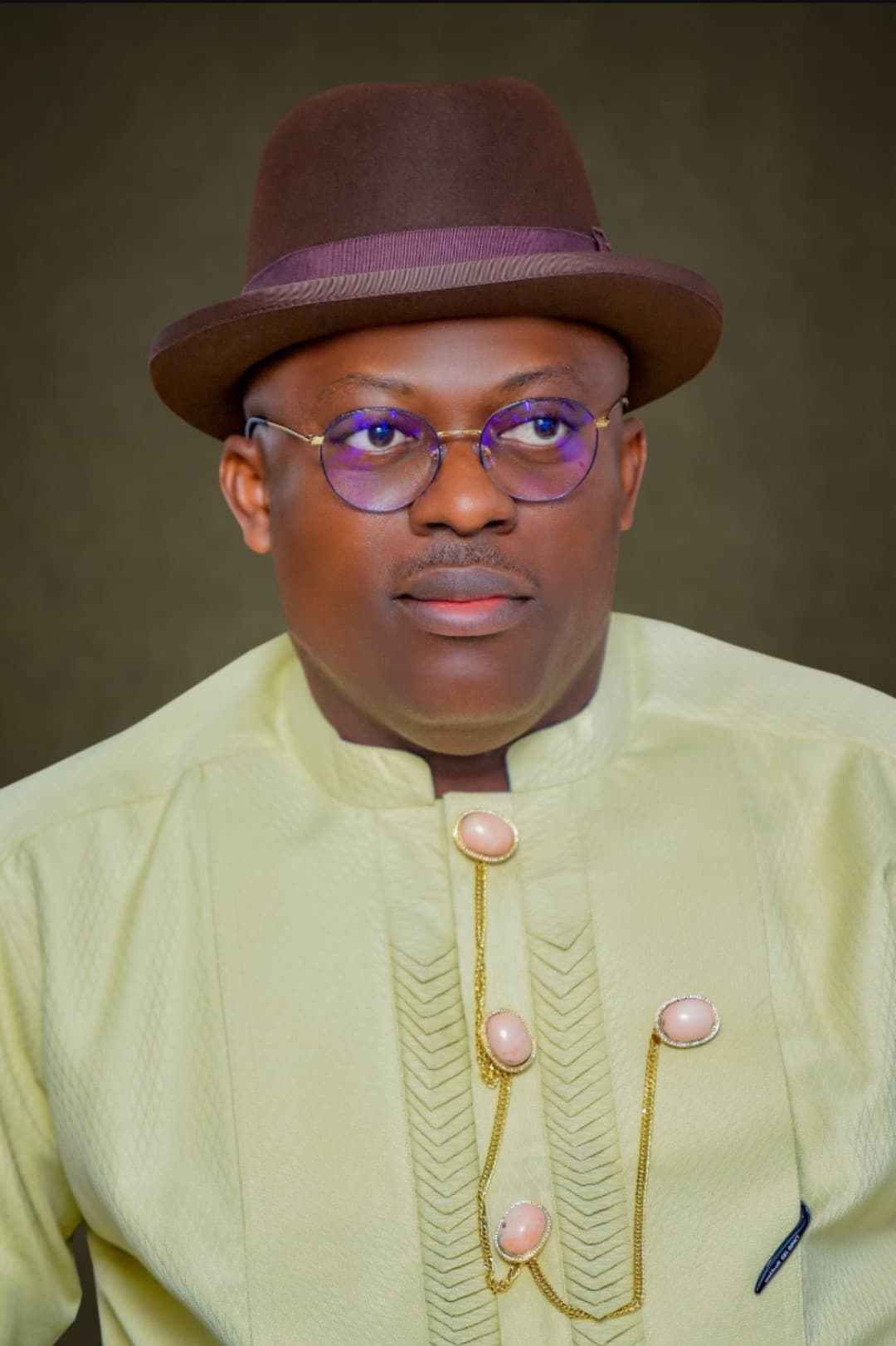
Rivers State Governor, Siminalayi Fubara, has unveiled a bold initiative to upgrade Ignatius Ajuru
University of Education’s (IAUE) infrastructure. This strategic effort is designed to boost the university’s capacity and position it as a leading educational institution in Nigeria. The plan includes a comprehensive redevelopment aimed at improving students’ experience.
This decision came after the university’s Governing Council requested urgent state government intervention to address critical infrastructure needs. Governor Fubara expressed concern over the current state of the institution’s facilities and emphasised his administration’s commitment to enhancing both infrastructure and education quality at IAUE.
The Governor has confirmed plans to construct several key facilities, including a new administrative block, student hostels, a modern health centre, and a sports complex. This extensive move aims to enhance various aspects of university life, improving administrative efficiency, student welfare, and recreational opportunities.
The prospective administrative block will symbolise a dedication to efficiency and seamless operations. Envision a modern, well-organised space where workflows are optimised, enabling university staff to concentrate on their core mission—supporting students and promoting academic excellence. Gone are the days of cramped offices and overflowing paperwork!
Students will also benefit substantially from the construction of new hostels. Many currently struggle with inadequate accommodation which affects both their studies and overall well-being. A comfortable and secure living environment is essential, and these new facilities will provide exactly that. It is like upgrading from a crowded dormitory to a modern apartment—an immense improvement in quality of life.
Access to quality healthcare is necessary for students. The proposed health centre will offer accessible medical services in well-equipped facilities which minimises the hassle of seeking quality care elsewhere. This spunk reflects the university’s commitment to student well-being, recognising that a healthy student is a more productive one.
Similarly, a new sports complex will be a valuable investment in student health, fitness, and social engagement. Beyond promoting physical activity, it contributes to a lively campus environment where students can relax, stay active, and foster friendships. Exercise benefits both the body and the mind, enhancing overall well-being.
Governor Fubara’s recent visit to the institution was more than a mere formality; it was a crucial step in assessing the university’s infrastructure needs. His firsthand examination of the existing facilities allowed him to attain a clear comprehension of the necessary upgrades, ensuring that the planned measures are both specific and influential—much like a medical professional evaluating a patient before suggesting therapy.
These initiatives will elevate IAUE to greater heights, fostering an environment that supports learning, research, and personal development. They will attract top-tier students and faculty to enhance the university’s reputation and academic excellence. Furthermore, the efforts will contribute to a broader vision for the state’s future, as Fubara’s commitment to education represents a strategic investment in human capital.
Ignatius Ajuru University’s infrastructure has faced several challenges, including overcrowded hostels, inadequate healthcare facilities, and a shortage of modern administrative spaces. This situation has hindered both learning and administrative efficiency. The new development aims to address all concerns directly.
We appreciate the Governor’s commitment as the first among past leaders to take concrete steps toward improving IAUE. However, we urge a broader approach that extends similar developments to all higher institutions in the state. For instance, Rivers State University contends with major infrastructural inadequacies, which accentuate the need for broad-based intervention. Ensuring fair distribution of resources across all educational institutions is essential for building a strong and inclusive education system where every student has access to quality facilities.
However, quality education must take priority. While infrastructure plays a role, what truly makes a difference is innovative teaching, a relevant curriculum, well-equipped laboratories, library, skilled lecturers—these elements produce graduates prepared for our interconnected world. IAUE requires additional resources because even the most modern campus with state-of-the-art buildings holds little value if instruction remains outdated or ineffective.
It is essential for both staff and students to show heartfelt appreciation for Fubara, considering that the new facilities will greatly enrich their time spent on campus. However, the responsibility to maintain these amenities falls on the entire university community, which must ensure they use them with circumspection to avoid unnecessary destruction.
To ensure that the ambitious projects achieve their desired success, it is crucial to maintain a high level of transparency and accountability throughout the construction process. Without a doubt, the proposed infrastructure will lay down a solid framework that supports the university’s growth and development in the years to come. This will ultimately encourage continuous progress.
Editorial
UNIZIK’s Expulsion Of Precious Mbakwe
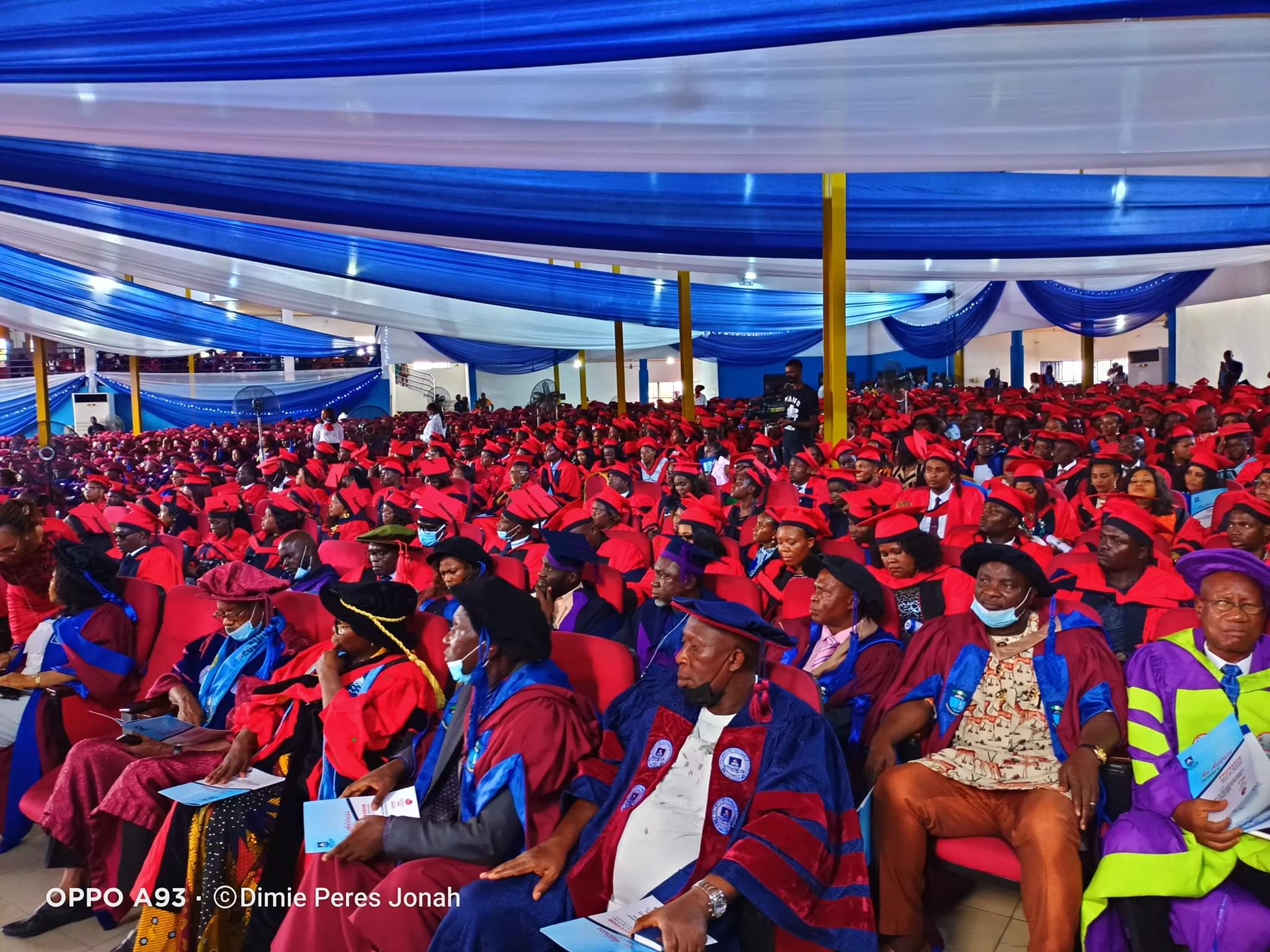
The recent expulsion of Precious Mbakwe, a 300- level female student of History and International Studies of the Nnamdi Azikiwe University (UNIZIK) by the institution’s management for assaulting a lecturer of the school is a commendable sanction. The decision sends a clear message about maintaining discipline and respect within academic institutions.
In a letter signed by the university registrar, Victor Modebelu, and addressed to Mbakwe, the university said the students disciplinary committee found her guilty of assault on a lecturer, Chukwudi Okoye, in the Department of Theatre Arts and Film Studies. The letter further noted that the student violated the Students Disciplinary Regulations particularly Regulation 4 (SDR). This formal documentation shows the university’s commitment to following proper procedures in disciplinary matters.
According to reports, trouble started when Mbakwe pounced on the lecturer, bit him multiple times, and tore his clothes for allegedly interrupting her TikTok video recording along the Faculty of Arts corridor. In response to the uproar, the university management launched a full-scale investigation into the incident. The severity of the assault warranted immediate attention from the institution’s authorities.
We unequivocally condemn the offensive against the lecturer. Acts of violence and misconduct are antithetical to the values of academic inquiry and should have no place within our educational establishments. This physical attack represents a grave breach of trust and conduct, a violation of the very foundation upon which a safe and productive learning surroundings is built.
Such mien cannot be tolerated in any educational setting, as it undermines the principles of respect, intellectual freedom, and the pursuit of knowledge that are essential to our scholarly community. We stand in solidarity with the victim and commit to fostering a campus culture where such occurrences are not only unacceptable but actively prevented.
Mbakwe’s reported action is an embarrassment to the student body and does not represent the values of the Nigerian student locale, which emphasises integrity, respect, and accountability. Such conduct besmirches the reputation of not only the individual but also the broader pedagogical community, which works diligently to uphold high standards of behaviour, professionalism, and academic excellence
We urge the university authorities to take a more decisive action by involving the police in the matter. The serious nature of this episode goes beyond what academic penalties can address. Such action would create a strong precedent, reinforcing the message that violence is intolerable and ensuring that future matters are met with appropriate legal consequences.
The academic milieu must be preserved as a space characterised by respect and learning. It serves as a foundational framework for intellectual growth and the exchange of ideas. Universities, in particular, play a critical and influential role in shaping the future leaders and professionals of society. Given this paramount responsibility, it becomes essential to maintain high standards of action and foster an atmosphere of mutual respect.
Proper channels exist for students to raise concerns and seek resolution of issues they face. Students should utilise these official processes and avoid actions that could harm their educational prospects. The established systems for addressing grievances provide constructive ways to resolve conflicts without resorting to disruptive etiquette.
Respect for lecturers lies at the heart of meaningful learned discourse. When students show genuine regard for their teachers’ expertise and experience, it creates a habitat conducive to erudition and intellectual advancement. This means actively participating in discussions, meeting deadlines, and approaching disagreements with maturity.
University rules serve as the framework that enables thousands of students and staff to coexist and work productively. These regulations, from library policies to examination procedures, are not arbitrary restrictions but carefully considered guidelines that protect erudite integrity and ensure fair treatment for all. Adhering to these guidelines enables students to foster a structured and effective educational environment while enhancing their abilities in complying with institutional regulations.
The National Association of Nigerian Students (NANS) should issue a formal statement condemning this disruptive comportment and urge all students to maintain decent conduct on campus. The union must emphasise the seriousness of treating lecturers and university administrators with due respect, while fostering an instructional environment that promotes constructive dialogue and mutual understanding between students and the authorities.
This incident should serve as a learning opportunity for all stakeholders in the Nigerian education system about the magnitude of maintaining decorum and following established protocols for conflict resolution. It reinforces the need for continuous dialogue about pertinent demeanour in intellectual settings while adapting to changing social norms.
Editorial
Solid Minerals, Cesspit Of Corruption
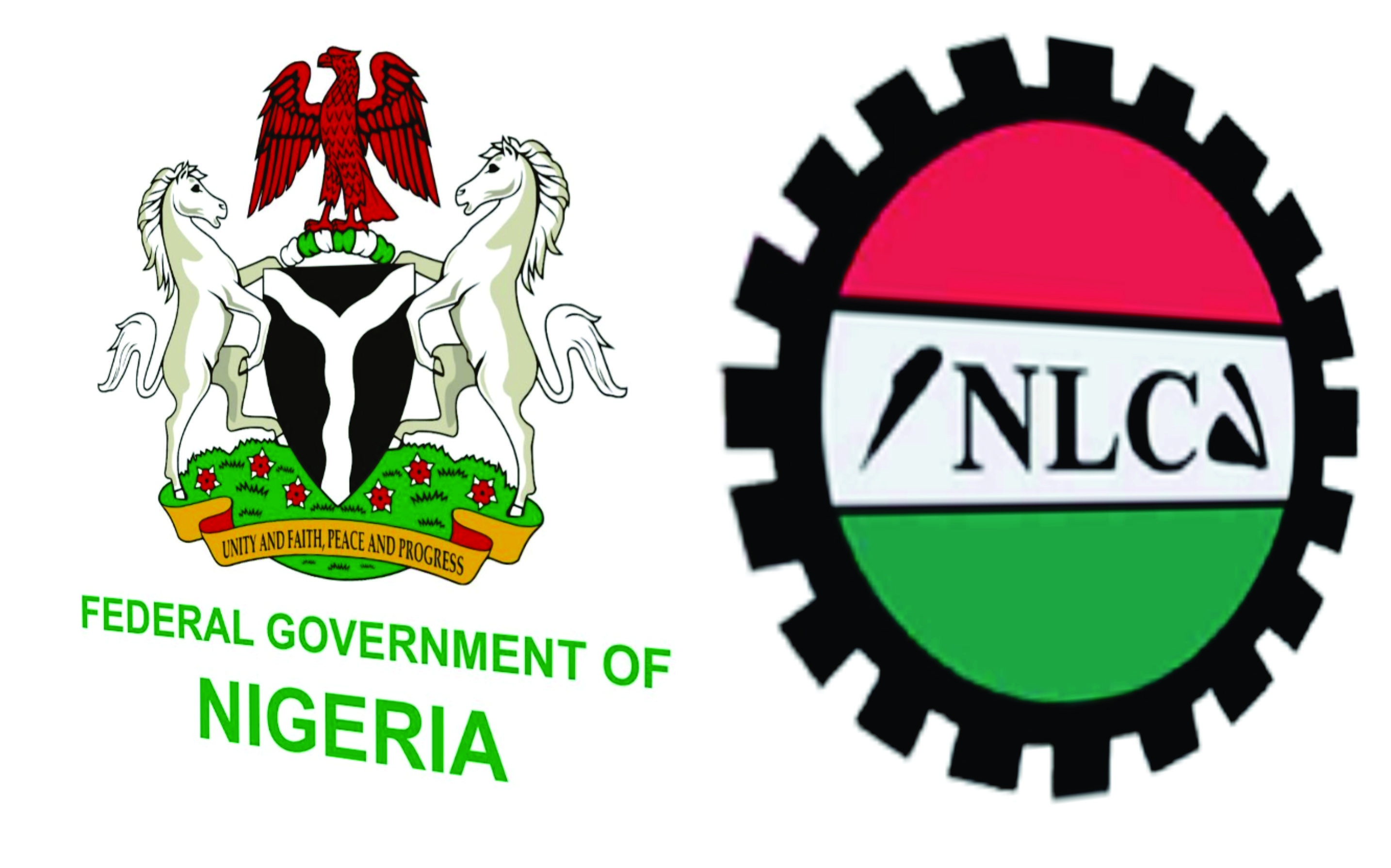
The recent revelations by former Labour leader and current Chair of the Senate Committee on Interior, Senator Adams Oshiomhole, have exposed a deeply troubling reality in Nigeria’s solid minerals sector. His disclosure that former military generals and foreign operators have systematically seized control of the country’s mineral deposits illuminates the extent of institutional decay and regulatory capture plaguing this vital economic sector.
Minister of Solid Minerals, Dele Alake’s confirmation of these allegations strengthens Oshiomhole’s claims. The minister’s clear identification of “powerful Nigerians” as the masterminds behind illegal mining operations, along with their alleged ties to terrorist financing networks, paints a troubling picture of the complex web of corruption that is undermining national security.
The audacious manner in which these mining syndicates operate reflects their deeply entrenched position within Nigeria’s power structure. Their apparent immunity from prosecution or oversight demonstrates how thoroughly they have infiltrated key institutions, enabling them to continue their exploitative activities without fear of consequences. This systemic failure has persisted across multiple administrations, highlighting the challenge of confronting these well-connected networks.
Former President Muhammadu Buhari’s tepid response to detailed intelligence briefings about the crisis represented a significant failure of leadership. The current administration under President Bola Tinubu appears to be following a similar pattern of inaction, raising serious questions about the political will to address the endemic corruption. This continued paralysis suggests either inability or unwillingness to challenge powerful vested interests.
The grim contrast between enforcement approaches in different regions of Nigeria reveals troubling inconsistencies in governance. While unauthorised petroleum refineries in the Niger Delta face swift and severe military action, illegal mining operations in the North continue largely unimpeded. This disparity in enforcement not only undermines the rule of law but also fuels regional tensions and perceptions of discriminatory treatment.
Selective enforcement practices by the government have created a dangerous precedent. Small-scale refiners in the South face immediate persecution, while large-scale illegal mining operations in the North proceed with apparent impunity. The uneven application of law enforcement has exacerbated security challenges and deepened existing regional divisions.
Shamefully, the deafening silence from authorities regarding widespread corruption in the mining sector strongly suggests high-level complicity. The “conspiracy of silence” has created an atmosphere of resignation among citizens, who witness the systematic looting of their national resources by a privileged few operating outside the bounds of law and accountability.
Further compounding this crisis is the psychological impact on the Nigerian populace. The visible impunity enjoyed by these mining cartels has fostered a sense of helplessness among ordinary citizens, who increasingly view government institutions as serving the interests of a corrupt elite rather than the general public.
Immediate and decisive actions are required to dismantle these criminal networks and restore integrity to the mining sector. Superficial reforms or symbolic gestures will prove insufficient; what’s required is a comprehensive strategy to investigate, prosecute, and punish all parties involved in illegal mining activities, regardless of their status or connections.
No one can imagine the security implications of allowing illegal mining to continue unchecked. The illicit funds generated from these operations provide essential financing for criminal organisations and extremist groups, creating a direct link between mineral theft and national security challenges. Addressing illegal mining therefore becomes critical for both economic and security reasons.
Reform of the extractive sector must extend beyond enforcement to include comprehensive regulatory overhaul. New frameworks must be established to ensure all mining operations adhere to strict environmental standards and contribute appropriately to national development. This includes implementing transparent permitting processes and ensuring proper revenue collection and distribution.
Transforming Nigeria’s mining sector represents a vital test of governance and national resolve. Success requires not only technical solutions but also the political courage to confront entrenched interests and implement lasting reforms. The future prosperity of Nigeria depends remarkably on whether its leaders can summon the will to protect and properly manage its vast mineral resources for the benefit of all citizens.
-
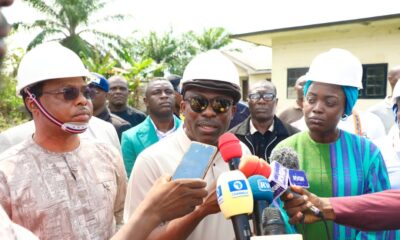
 News2 days ago
News2 days agoHealth Commissioner Tasks New Employees on Professionalism
-
Business2 days ago
LASG Arrests Illegal Dredgers … Issues Stop Work Order
-
Niger Delta2 days ago
Police Detain 5 Over Killing In Edo
-
News2 days ago
Okogbule Steps Down, Lauds Fubara For Support As RSU VC
-
Business2 days ago
Health Commissioner Tasks New Employees On Professionalism
-
Sports2 days ago
Ogba, Others Endorse Niger Delta Sports Festival
-
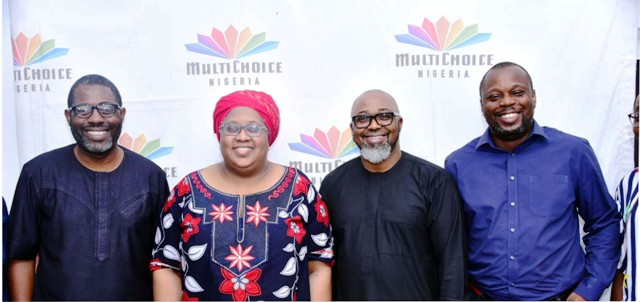
 News2 days ago
News2 days agoReps Order MultiChoice To Suspend Subscription Hike
-
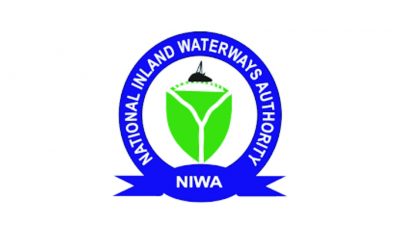
 Business2 days ago
Business2 days agoFG Inaugurates Special Committee Against Boat Accident

